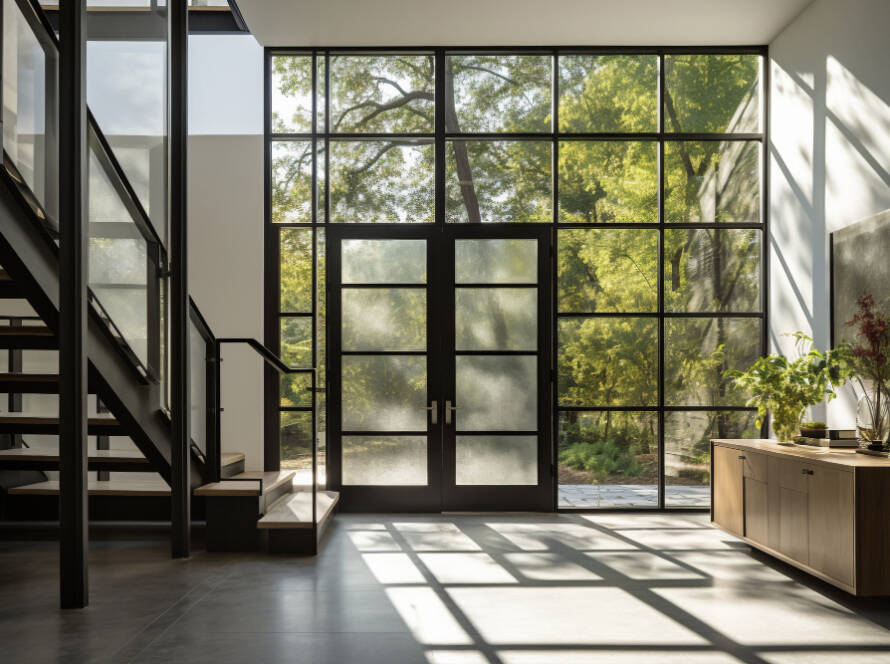In the present world where apprehensive noises are faintly creeping in our everyday lives; the clamor for silence can hardly be overemphasized. Unwanted noise reduction whether we hear from a noisy environment such as a busy street, or is seeking some quiet in our home or at workplace makes soundproofing a high priority area in homes and other establishments.
One of the most effective solutions on the market today is soundproof glass – a product that in addition to noise insulation delivers unparalleled comfort, privacy, and energy conservation. However, what is meant by soundproof glass? And how does it work to minimize noise? We should take a closer look at some of its manufacturing properties as well as examine a range of uses for soundproof glass.
Why Do We Need Soundproof Glass ?
The Soundproof Glass needed today is The question might be a simple one but the answer is more complex – we require. Light pollution can also become a constant issue throughout the day and at night traffic noise, construction, crowds, and other constant sources of noise in large cities. Tertiary source of noise can interfere with the focus, cause stress and sleep disruptions which in turn presents long-term health consequences.
Therefore, people and companies are trying to find ways and means that help them reduce noise levels in spaces intending to have a better quality of life. Thus the objective of achieving reasonable sound isolation while maintaining natural lighting has led to the popular use of sound proof glass.
The principles of soundproof glass systems also provide protection against noise coming from outside the buildings and offer a possibility to provide a free view of the surrounding environment. In residential, commercial, or hospitality spaces, soundproof glass is assisting in designing more effective spaces for habitation, production, or leisure.
Production Features Of Sound Proof Glass
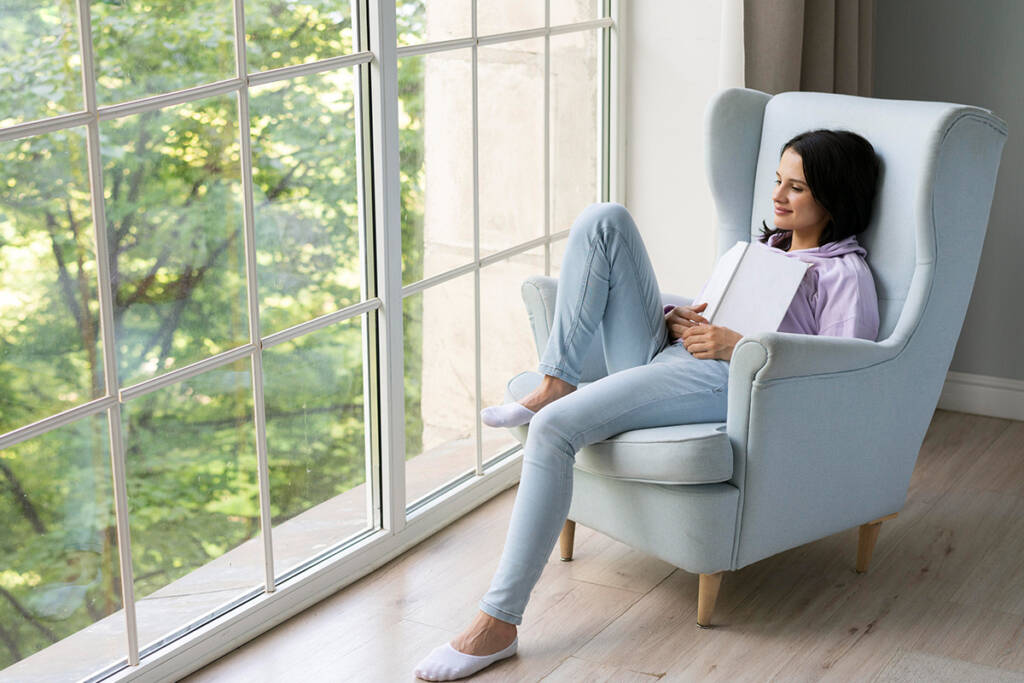
- Sound Transmission Control Laminated Glass with Acoustic Film
However, one of the most effective approaches toward creating soundproof properties in glass is the laminated glass containing an extraordinary acoustic film. This film is normally made up of polyvinyl butyral (PVB) and is fixed between two glass panes. These acoustic films help to cover the noise vibrations and eliminate most of the noise that penetrate through the glass. The degree of the sound insulation is defined by the thickness and density of the glass panels installed and the type of acoustic film.
Example: In this kind of laminated glass, a 6mm glass layer is followed by 1.5mm sound-insulating film, which is topped with another 6mm layer of glass: with such laminated glass a sound reduction can reach 40 dB, which is important for locations that require great levels of silent, for instance, bedrooms in large cities or offices close to highways.
- Insulated Glass Units (IGUs)
Another way of soundproofing is through the use of the insulated glass units which refer to a combination of glass panes separated by an empty space. These are normally constructed using two or more glass panels enclosing an air or a gas gap in between. Argon or any other desired gas aids in heat insulation and barrier against sound at the same time. In the case of soundproof glass the actual glass panels vary in thickness and since sound has the capability of determining the frequency at which it will travel in any given material, the glass breaks all of the sound up so that it no longer possesses the drive to advance through the glass. The space between the panels can also be managed to allow even better soundproofing.
Example: An IGU created for sound insulation may consist of the two 10 mm of glass thickness with a 16mm airspace which can help to minimize the level of the sound transferred in and out of the house by decreasing the transmission of external sounds such as traffic noises, or noise generated by airplanes. Varying thickness of the glass panes and correct air gap is again the most efficient way to break the noise isolation.
Of the two manufacturing processes, laminated production with acoustic film and insulated glass can be specified for various levels of noise. No matter whether it is the sound of traffic, construction sites or neighbors, or internal noise between rooms, soundproof glass solves a lot of problems.
Applications Of Soundproof Glass
Soundproof glass is versatile and may be used in buildings of all types and structures to create privacy and tranquility no matter the amount of noise in the outside world. Here are some common applications:
1. Patio Doors
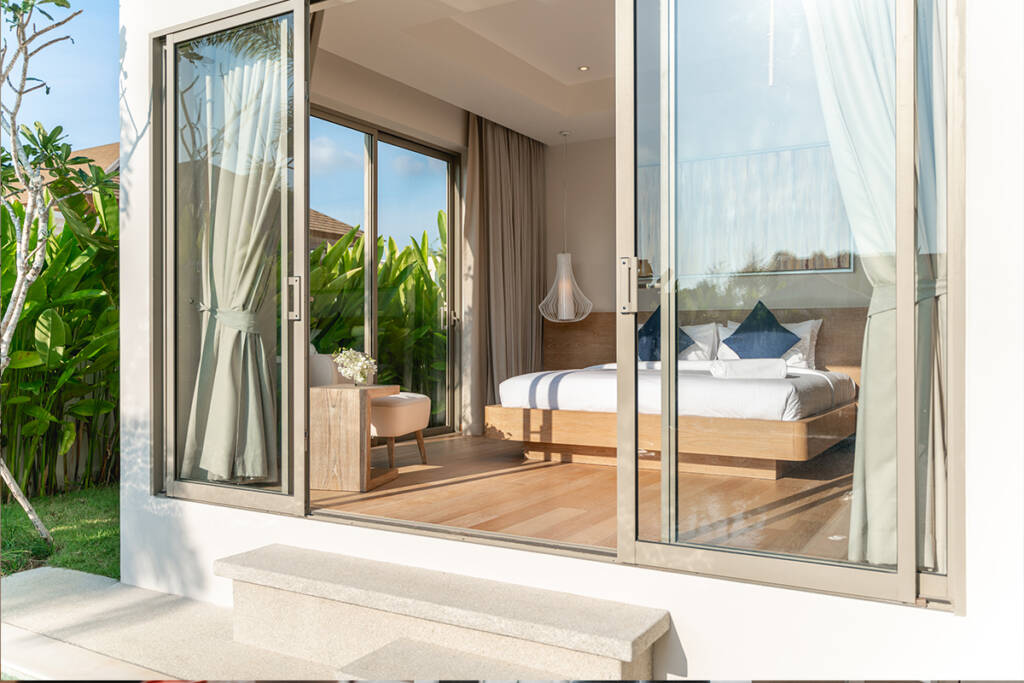
Those who live close to noisy roads or in heavily populated zones would greatly benefit from soundproofing in one of the most used areas of a house – the patio doors. When made from laminated glass or insulated glass units these doors will help to keep the living space quieter while still being able to let light into the room.
2. Windows
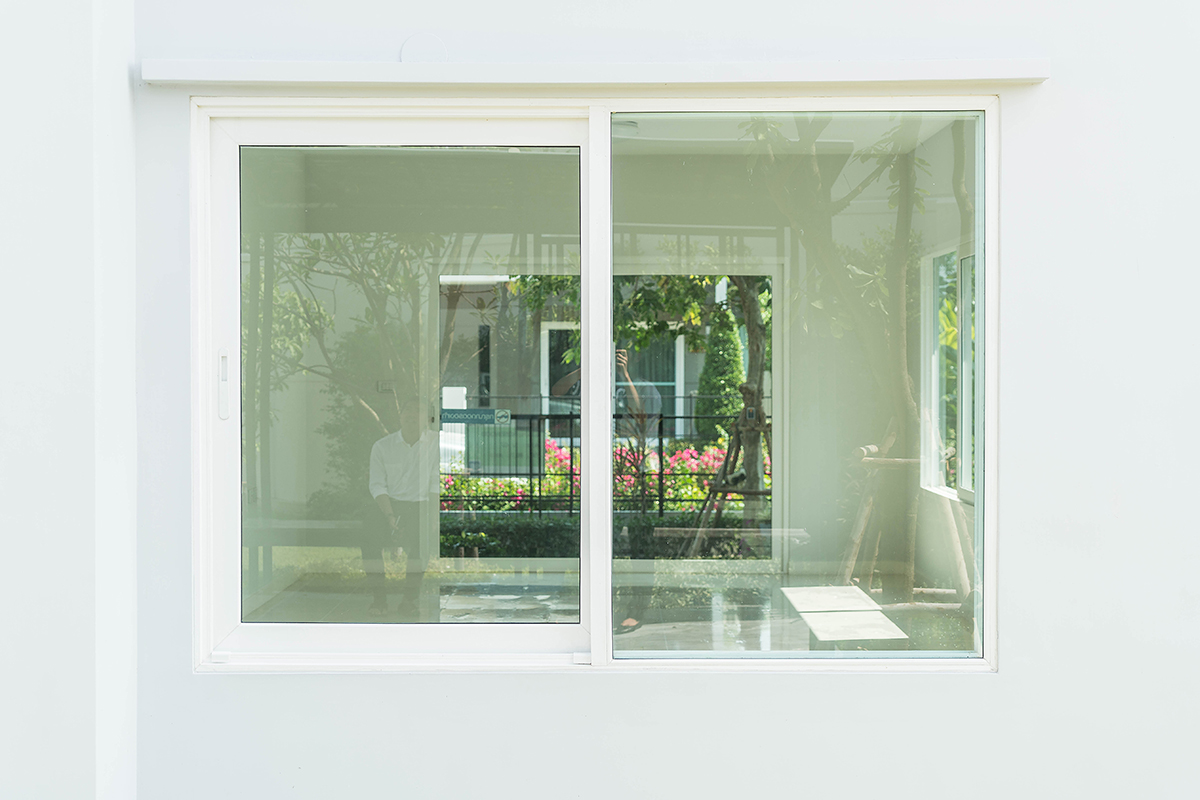
Unfortunately, sometimes people can get loud and that is why soundproof windows are among the most popular solutions for homes and offices located in such areas. Soundproof glass can come in a simple DGM soundproofed window with solid acoustic clam or in a TGI with double or triple interlayers of glass and an insulated space.
3. Skylights
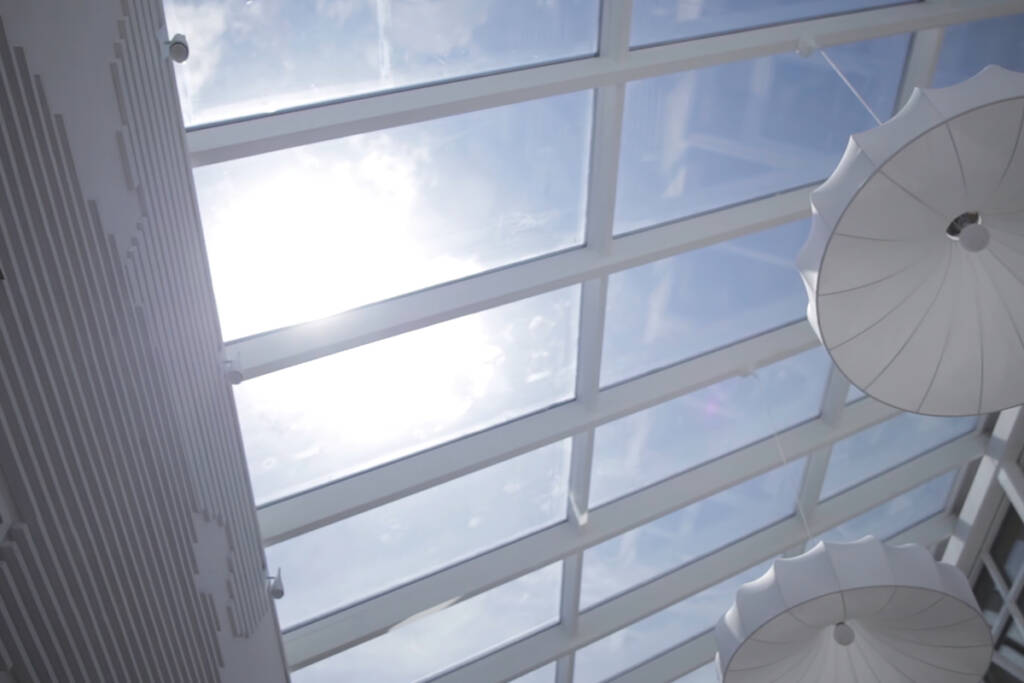
Skylights bring in natural light into a room but also allow droplets of rain or hail, or other outside noises in. Skylights can be improved if soundproof glass is installed, therefore they are used in offices and bedrooms, among other rooms.
4. Internal Screens
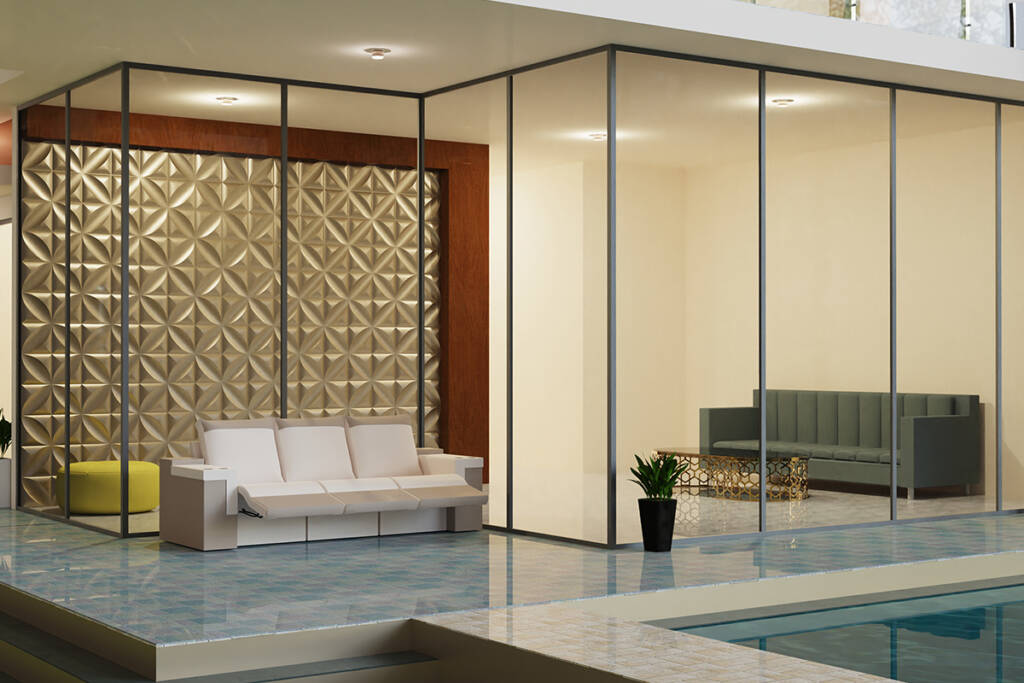
Soundproof doors and windows such as Internal partitions or screens of soundproof glass are ideal for offices that need privacy or conference halls. Such internal applications enable companies to keep an open workspace while at the same time controlling the noise transfer between sections of a structure.
5. Room Partitions
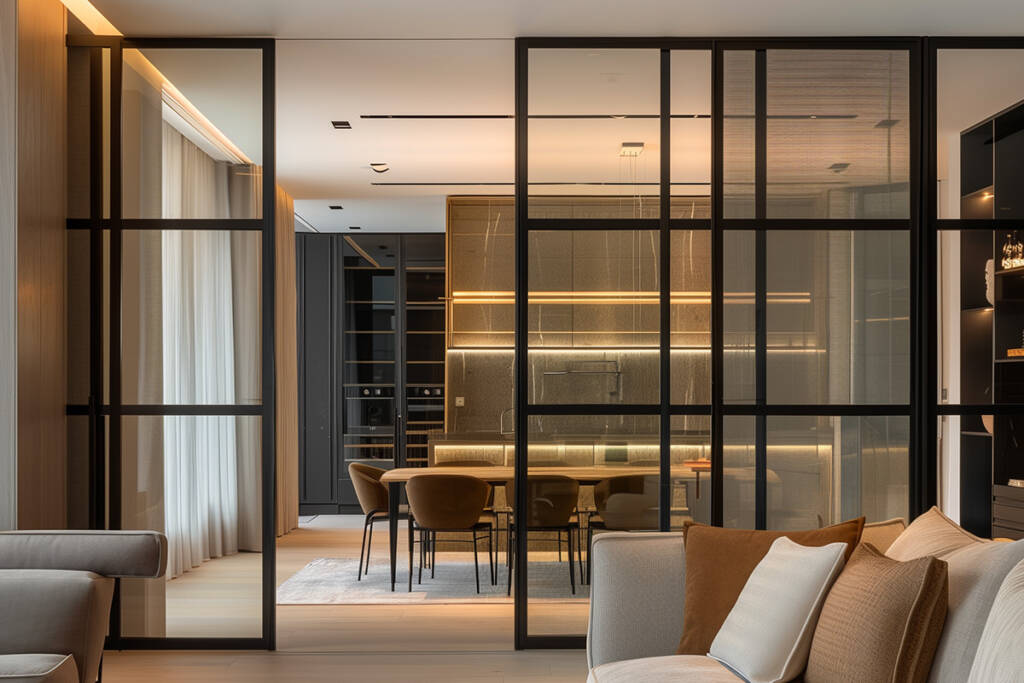
Some of the divisions may include room divisions in large open spaces such as hotels, hospitals or offices, and the partitions may be done by creating glasses which are sound proofed. This way privacy is observed to as much extent as possible with as little interference from noises as possible.
6. Conservatories
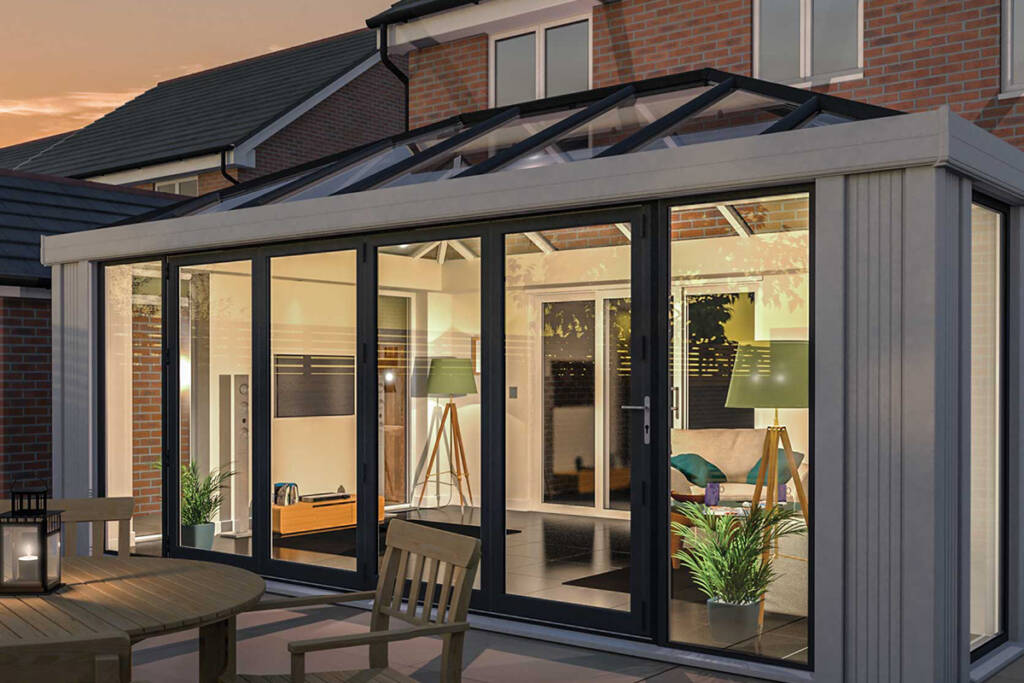
A conservatory is expected to be calm, and most of all fun; however, noise pollution from the outside can be quite a nuisance. Therefore, when it comes to selecting the materials for a conservatory, soundproof glazing may be one of the best options since it will make this area as quiet as you need, without disturbing noises from outside.
TPRS Glass Providers - Your Best Soundproof Glass Solutions Partner
When it comes to searching for the best soundproof glass options, it is necessary to cooperate with the provider who knows what kind of sounds can be insulated. We at TPRS Glass are proud to offer market-leading soundproof glasses for use in many different contexts, including both homes and businesses. Our staff guarantees you the right solution with custom choices in sound control, privacy, and insulation.
Whether you are working on your window replacement, patio doors or office partitions TPRS Glass provides sound proof glazing. Contact us now to get more information about our products, and know which products will suit you best.
Still the heart’s and mind’s first and primary need for quiet is, indeed, a quiet world to live in. For all the soundproof glazing needs, you should go for TPRS Glass.
Also Check out our blog on Ultimate Guide For Choosing Soundproof Windows.





